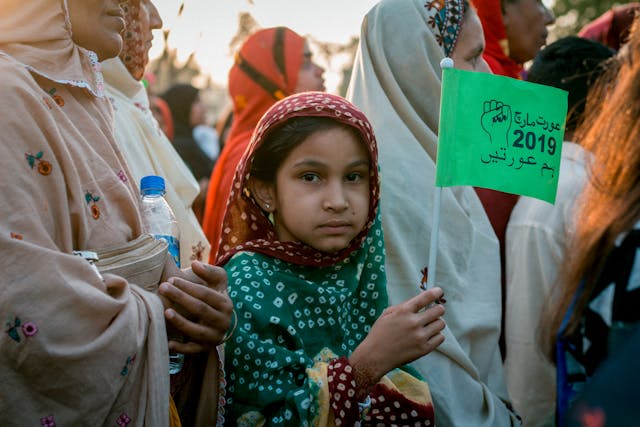Strategic interests underlie international politics behind the curtains of diplomacy. As a tool of modern foreign policy, it can be argued that foreign funding often comes with strings attached. In this article, we briefly discuss some of the theories on foreign aid – and try to recognize the strategic interests that define the character of countries during interactions with one another.
Historical perspective on foreign aid
Foreign aid has long been debated in academic and political circles. It mainly emerged as a subject matter of foreign policy after World War II. Economides and Wilson (2001) discuss the definition, historical context, political critiques, and evolving patterns of economic aid and aid policies. Most types of modern economic aid are quid pro quo in the sense that they hold “political and strategic considerations.” In the modern art of foreign policy, economics can be utilized as an “instrument of politics” by donor states to engage the recipient countries (pp. 123-139).
For example, during the Cold War, aid by the US – such as the programs initiated under the Marshall Plan and other funding projects – was an essential part of the United States’ geopolitical and military strategy to strengthen itself against the communist threat. President Richard Nixon remarked in 1968: “Let us remember that the main purpose of American aid is not to help other nations but to help ourselves” (Economides & Wilson, 2001).
The Soviet Union, too, employed the policy of foreign funding to gather allies. As a result, “billions of dollars and roubles” were extended to other parts of the world as strategic instruments to expand the interests of both sides (Economides and Wilson, 2001). Afghanistan and Pakistan are prime examples of countries that became battlegrounds hosting US-USSR proxy wars – being guided and directed under the toolkit of foreign funding.
Economides and Wilson also show that with the collapse of the Soviet Union, the US considerations of economic aid evolved – emphasizing the spread of the capitalist system and liberal democracy in the world.
Politics in action…
Strategic considerations are an important dimension of foreign funding. Morgenthau (1962) indicates that the United States has economic and political interests beyond its borders which cannot always be protected through traditional diplomatic means or military transfer. Hence, offering economic aid is essential to gather support and secure the international interests of the US.
Morgenthau describes different types of aid: humanitarian, subsistence, military, prestige, bribery and aid for economic development. All these kinds of aids, the author asserts, are political in one way or the other – except for humanitarian aid, which too can operate “within a political context.”
The practice of giving bribes, under the label of aid for economic development, is to obligate recipient countries into certain impositions – thereby putting both sides “in a play.” Morgenthau further argues that the exchange of expectations underlying foreign aid end up in disappointments.
Disappointments in the US-Pak case
There have been concerns, for example, that the influx of military aid to Pakistan during the 1980s and the 2000s has contributed little to the security and safety of the people of Pakistan – let alone development (American Progress, 2008). Another critique of the massive military aid to Pakistan, from the side of the United States, is that oversights, misappropriation and corruption of funds received by Pakistani officials end up frittering aid money down the drain (Dear, 2008).
Corruption in Pakistan and overlooking of its evidence thereof by the US officials, as Ibrahim (2009) shows, is a crucial part of the critique of foreign aid. When the transfer of US taxpayers’ money to other countries in order to serve the superpower’s foreign policy objectives proves inadequate, disappointment is inevitable – just as Morgenthau maintained.
Similarly, failing to observe substantial improvement in security, development and economy despite decades of aid inflow, Pakistani citizens recurrently criticize the US military involvement in their country, strict conditionalities of aid programs, and the vested strategic and geopolitical interests of the US. Haider (2012) argues that billions of dollars in assistance have immensely weakened state institutions, buttressed the elite coalition mostly, and unduly interfered with the sovereignty of Pakistan.
Altruistic side of foreign aid?
In contrast, Bandyopadhyay and Vermann (2013), published in the Review of Federal Reserve Bank of St. Louis, argue that “pure altruism” – or humanitarian drive – is mostly the primary motive for giving aid to developing countries. The purpose is to help reduce poverty and improve the average standard of living of people.
This is contested on the ground that much of the aid conditions direct spending on “brick and mortar” rather than “human capital” (Haider, 2012). Moreover, it is noteworthy that foreign aid for economic development itself carries strategic implications.
For example, US aid is provided with a mechanism to promote greater liberalization, democratization and capitalist structures, which would increase the production capacity of recipient countries and make them, as Bandyopadhyay and Vermann themselves put it, “markets for the United States.”
Despite this, according to the evidence collected in the case of Pakistan, much of the influx of aid has subsidized and reinforced military dictatorships against parliamentary order. Haider (2012) highlights that the temporary prevalence of civilian governments in Pakistan during the 1990s – in lieu of military dictatorships – is correlated to the paucity of US foreign funding.
There are instances of releasing foreign aid for developmental and humanitarian causes, such as establishing universities and aiding disadvantaged people. These aid programs, no doubt, have worked in the past and are not meant to be undermined in the foregoing discussion.
We essentially stress on the strategic and political considerations of aid, whether military or economic. The authors Bandyopadhyay and Vermann nonetheless recognize strategic and geopolitical interests behind aid – which were present during the Cold War regime but have considerably increased after the September 11 attacks.
Apart from strategic considerations, an understated aspect of aid – development or security-related – is that a considerable percentage of it usually rebounds back to the donor states, either in “contractual payments to consultants and manufacturers” or while purchasing the US-made military equipment (Haider, 2012).
Bilateral relationships
Strategic considerations behind foreign funding are not a one-way street, with only the donor having vested interests. The recipient countries also determine their interests out of loan agreements and aid programs.
For instance, even if both America and China have interests in keeping Pakistan within their “sphere of influence,” Pakistan has not been reticent in making use of “the subtle power struggle to improve its security profile vis-à-vis India” (Smith, 2011).
However, the donor states typically have more leverage in the process – as the recipient country may need assistance, but the donor country is never in need of assisting. As a result, the latter may demand certain strategic favors, such as alliance of a country in a particular region (Saudi-US case), military space in the recipient country (Pak-US case), or access to a lucrative trade route (Pak-China case).
These strategic exchanges play an essential role in steering bilateral relationships between countries during aid contracts.
The purpose of the above discussion is to develop a critical attitude towards foreign aid. History is replete with instances where geopolitical and geo-economic interests have determined relationships between international actors. Maintaining a critical attitude towards international relationships can not only help understand the hidden interests behind those relationships – but that understanding can serve as a pretext for making more informed negotiations during interactions.
Concluding remarks
It is noteworthy, despite the structural patterns that underlie the international world order, countries can decide and plan for their own trajectories within the greater framework. Where the practices of great powers can have a bearing on less-powerful countries, what great powers do does not predetermine the pathway other countries may take. Every country, keeping its interests and security in consideration, has the capacity to make informed decisions within the broader framework.
Naturally, it should look after its own interests first and foremost, and simultaneously envision a wider network of mutuality between countries – which ensures, so to speak, the country’s security and wellbeing as well as regional and global coordination.
A country should not compromise its internal economic and institutional development to attend to certain strategic interests, especially under the direction of foreign funding.
References
American Progress. (2008). U.S. Aid to Pakistan by the Numbers. Center for American Progress.
Bandyopadhyay, S. and Vermann, E. K. (2013). Donor Motives for Foreign Aid. Federal Reserve Bank of St. Louis Review, July/August 2013, 95(4), pp. 327-36.
Dear, B. (2008). Where Did the Money Go? Oversight Lacking in Aid to Pakistan. Center for American Progress.
Economides, S. and Wilson, P. (2001). The Economic Factor in International Relations: A Brief Introduction. I.B.Tauris & Co Ltd.
Haider, M. (2012). Can Pakistan survive without US aid? Dawn.
Ibrahim, A. (2009). U.S. Aid to Pakistan – U.S. Taxpayers Have Funded Pakistani Corruption. Discussion Paper, 2009-06, Belfer Center for Science and International Affairs.
Morgenthau, H. (1962). A Political Theory of Foreign Aid. The American Political Science Review, 56(2), 301-309.
Smith, P. (2011). The China-Pakistan-United States Strategic Triangle: From Cold War to the “War on Terrorism”. Asian Affairs, 38(4), 197-220.







2 thoughts on “Interests before Interactions: A Political Critique of Foreign Aid”
Pingback: Iran-Saudi Proxy Wars in Pakistan and Afghanistan - Effective Thoughts
Pingback: Issues in the U.S. Foreign Policy - Effective Thoughts